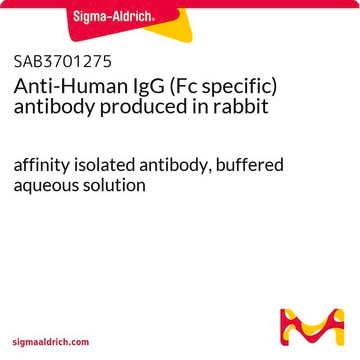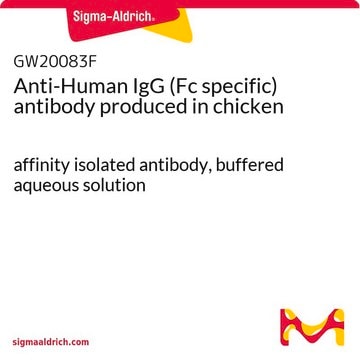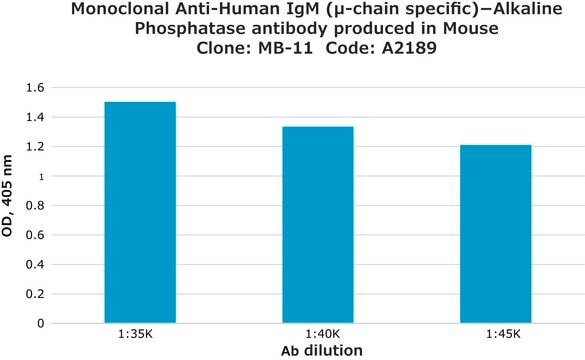I6260
Monoclonal Anti-Human IgG (Fc specific) antibody produced in mouse
clone GG-7, ascites fluid
About This Item
Produits recommandés
Source biologique
mouse
Conjugué
unconjugated
Forme d'anticorps
ascites fluid
Type de produit anticorps
secondary antibodies
Clone
GG-7, monoclonal
Contient
15 mM sodium azide
Technique(s)
indirect ELISA: 1:40,000
Isotype
IgG1
Conditions d'expédition
dry ice
Température de stockage
−20°C
Modification post-traductionnelle de la cible
unmodified
Description générale
Spécificité
Immunogène
Application
- to study the relationship between cell size, cell cycle and specific recombinant protein productivity
- in the label-free homogeneous assay to identify inhibitors of a4b7 integrin-mediated cell adhesion to mucosal addressin cell adhesion molecule (MadCAM)
- in enzyme-linked immunosorbent assay
Actions biochimiques/physiologiques
Forme physique
Stockage et stabilité
Clause de non-responsabilité
Vous ne trouvez pas le bon produit ?
Essayez notre Outil de sélection de produits.
Code de la classe de stockage
10 - Combustible liquids
Classe de danger pour l'eau (WGK)
nwg
Point d'éclair (°F)
Not applicable
Point d'éclair (°C)
Not applicable
Certificats d'analyse (COA)
Recherchez un Certificats d'analyse (COA) en saisissant le numéro de lot du produit. Les numéros de lot figurent sur l'étiquette du produit après les mots "Lot" ou "Batch".
Déjà en possession de ce produit ?
Retrouvez la documentation relative aux produits que vous avez récemment achetés dans la Bibliothèque de documents.
Les clients ont également consulté
Notre équipe de scientifiques dispose d'une expérience dans tous les secteurs de la recherche, notamment en sciences de la vie, science des matériaux, synthèse chimique, chromatographie, analyse et dans de nombreux autres domaines..
Contacter notre Service technique
















